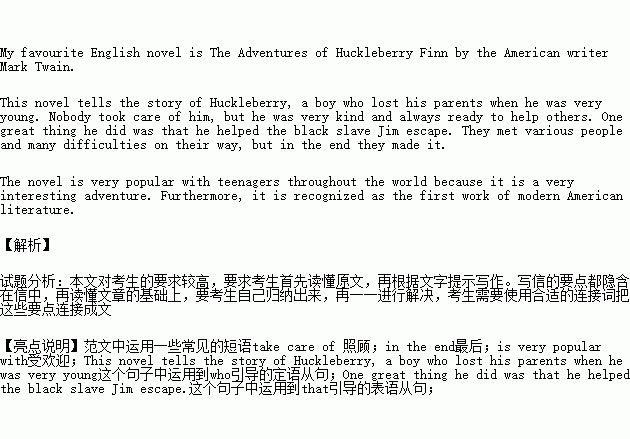��Ŀ����
�������
�������ǰ�Ҫ��һ��Ӣ��ǣ������ǡ�����ϲ����Ӣ����Ʒ��������������±������Ϣ������һ�����ˡ����µġ����˱������Ѷ����ռǡ���������100���ҡ�
���� | �����˱������Ѷ����ռǡ���The Adventures of Huckleberry Finn�� |
���� | ���ˡ����£�Mark Twain�� |
���ݼ�� | ���˱������Ѷ���һ���¶��� ���˹����� ���ĵ���������������ūJim������һ·������������������裬������ȡ����ʤ���� |
���� | ����ȫ������������ߵ�ϲ�������˳ƣ���ȫ���ִ�������ѧ��Դ�����ˡ����µ�һ�����С����˱������Ѷ����ռǡ����顱�� |
��ϰ��ϵ�д�
 ��ͼͼ�麮����ҵ������ҵ���ִ�ѧ������ϵ�д�
��ͼͼ�麮����ҵ������ҵ���ִ�ѧ������ϵ�д�
�����Ŀ

